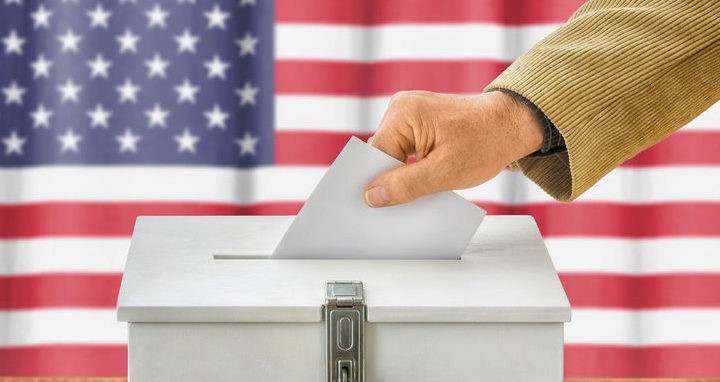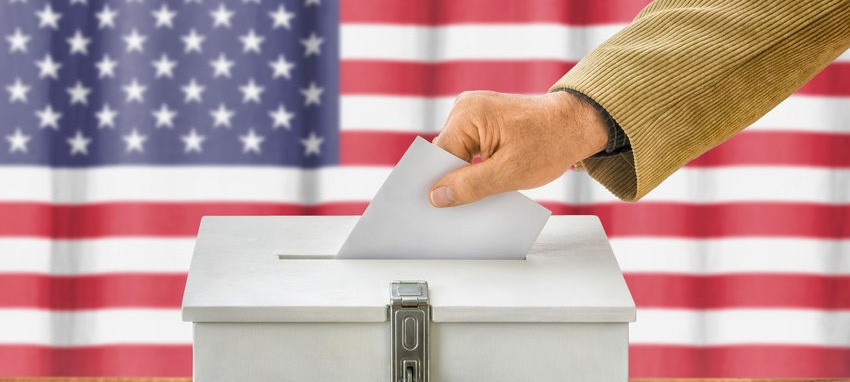As a Baptist minister, I’m frightened about the midterm elections. But not for the reasons some would think. I’m frightened because, across the nation, I’m seeing an upswell of fellow believers distorting the meaning of our faith into a license to discriminate and subjugate.
From Michael Flynn’s damaging ReAwaken America tour to relentless attacks on LGBTQ students and educators, to an uptick in overt antisemitism, the influence of Christian nationalism on this election is undeniable — and it’s up to people of faith to sound the alarm and offer an alternative vision.

Paul Raushenbush
Christian nationalism is not shorthand for an American who is both Christian and patriotic. Rather, Christian nationalists are a small yet organized slice of Americans working to hijack democracy. It’s not religion, but instead a cultural framework that conflates American identity with an exclusive form of religious identity. Its adherents are hoping to use the law and the ballot box to privilege a specific version of Christianity over people of other faiths and no faith, as well as other Christians who don’t believe the same things they do.
From my vantage point, I see the detrimental influence of Christian nationalism as threefold: mandating personal morality, assaulting pluralism, and undermining democracy.
“Christian nationalists and their enablers are mobilizing to impose their unpopular ideas of morality on the rest of Americans and regulate the private decisions Americans make about our lives.”
With candidates and ballot initiatives, Christian nationalists and their enablers are mobilizing to impose their unpopular ideas of morality on the rest of Americans and regulate the private decisions Americans make about our lives. There is nothing new about morality policing. What is new, however, is its coordinated resurgence at the local, state and federal level in recent years.
Abortion is the most obvious example of this effort. And while the anti-choice movement claims their work is mandated by people of faith, different religious traditions approach matters of reproductive health care in different ways. The religious freedom of those Americans whose traditions allow for abortion must be given equal status. Likewise, rights for LGBTQ people are overwhelmingly supported by people of faith. To me, that means true religious freedom includes the freedom of LGBTQ people to be safe and have their families thrive at home and in schools and should be protected.
It’s not just legislation that Christian nationalists are pushing — they’re also working to dismantle our social willingness to join across lines of difference. Unlike my nationalist counterparts, my version of Christianity means I believe in “soul freedom” and that religious diversity, the separation of church and state, and religious freedom for all are foundational principles of the American project.
To my fellow Christians who have yet to speak out against Christian nationalism, I ask: Do we really want to live in a country in which our neighbors who are Jewish, Muslim and other traditions and no traditions have secondary status? We know the consequences of such positions.
As just one example, when politicians and public officials allied with the Religious Right espouse antisemitic tropes, antisemitism follows. The very idea of a “Christian nation” is anathema to the religiously diverse America I love and the inclusive theology I practice.
So, what are Christians of good conscience to do? It’s clear the Christian nationalist movement will do anything it can to preserve itself — including undermining democracy itself. The Constitution and Christian nationalism are fundamentally incompatible. Furthering their movement of religious supremacy necessitates dismantling our democratic system. January 6 was the most stark example of this, with some of the most indelible images from that day featuring Christian nationalist symbols and language.
“America can be a democracy or it can be a Christian nation, but it cannot be both.”
But since 2020, there has been an epidemic of election-denial on the Religious Right. This year’s elections haven’t even occurred, and many on the far right already are proclaiming they will reject the results of the election if their candidate does not win. Why? Because to them, the religious mandate to push their agenda forward supersedes an allegiance to the Constitution. America can be a democracy or it can be a Christian nation, but it cannot be both, and this movement has chosen the latter.
The upcoming election offers the real moral majority in America an opportunity to chart a better path forward.
Interfaith Alliance, the organization I lead, is working side by side with folks from every political and religious background to build a diverse coalition mobilized against Christian nationalism. We have launched a voter pledge to vote no on Christian nationalism, and we encourage voters to vote yes on an America that values religious freedom, affirms our collective humanity and allows all people to flourish.
While our opponents may be coordinated, we are united in our vision of inclusivity and abundance. That is where our power lies. As the midterms approach, I hope Christians are guided by their faith to reject Christian nationalism and protect the sanctity of our Constitution.
Paul Brandeis Raushenbush, a Baptist pastor, serves as president and CEO of Interfaith Alliance.
Related articles:
What I’m learning about Christian nationalism | Opinion by Dwight A. Moody
Advocacy group names 20 ‘false prophets’ of Christian nationalism
Panelists sound urgent wake-up call about the threat of Christian nationalism


